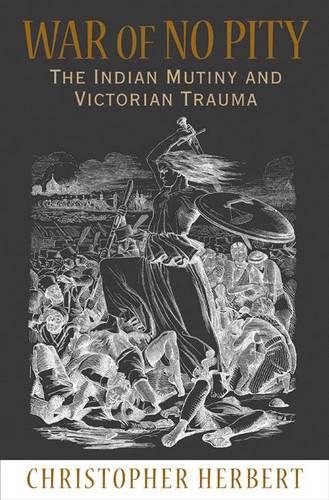Overview
Drawing on nineteenth-century texts, including memoirs, histories, letters, works of journalism, and novels, this title shows that the startling ferocity of the conflict in India provoked a crisis of national conscience and a series of searing if often painfully ambivalent condemnations of British actions in India both prior to and during the war.
Full Product Details
Author: Christopher Herbert
Publisher: Princeton University Press
Imprint: Princeton University Press
Dimensions:
Width: 15.20cm
, Height: 2.70cm
, Length: 23.50cm
Weight: 0.624kg
ISBN: 9780691133324
ISBN 10: 0691133328
Pages: 336
Publication Date: 02 December 2007
Audience:
Professional and scholarly
,
College/higher education
,
Professional & Vocational
,
Tertiary & Higher Education
Format: Hardback
Publisher's Status: Out of Print
Availability: Awaiting stock
 Language:
Language: English
Reviews
War of No Pity is a vital and vitally important work of literary, cultural, and historical criticism, one that no student of the Victorian period can afford not to know. -- Stephen Arata Victorian Studies Christopher Herbert has done postcolonialists, Victorianists, and indeed anyone interested in modern violence a remarkable service in reading a vast amount of Mutiny literature and returning to tell the tale of it. War of No Pity explicates the kind of violence that can ensue between any us and any them, given the recurrent conditions of empire, in all of its forms and fictions. -- Elaine Freedgood Criticism A most impressive study of colonial relations and India is Christopher Herbert's War of No Pity: The Indian Mutiny and Victorian Trauma that, in great and significant detail, does away with as many presuppositions as possible. -- Ann C. Colley Studies in English Literature [T]his is an excellent book, admirable in its scope and depth, thoroughly enjoyable, and very thought provoking. -- Michael J. Turner Journal of British Studies Students of Britain's nineteenth-century empire owe Herbert a considerable debt for the sheer volume of Mutiny references, both popular and highbrow, he has assembled here... Herbert has given us new and compelling reasons to return to the Mutiny as a watershed, if not the watershed, moment in the making of Victorian imperial culture. -- Antoinette Burton Journal of Modern History
War of No Pity is a vital and vitally important work of literary, cultural, and historical criticism, one that no student of the Victorian period can afford not to know. -- Stephen Arata, Victorian Studies Christopher Herbert has done postcolonialists, Victorianists, and indeed anyone interested in modern violence a remarkable service in reading a vast amount of Mutiny literature and returning to tell the tale of it. War of No Pity explicates the kind of violence that can ensue between any us and any them, given the recurrent conditions of empire, in all of its forms and fictions. -- Elaine Freedgood, Criticism A most impressive study of colonial relations and India is Christopher Herbert's War of No Pity: The Indian Mutiny and Victorian Trauma that, in great and significant detail, does away with as many presuppositions as possible. -- Ann C. Colley, Studies in English Literature [T]his is an excellent book, admirable in its scope and depth, thoroughly enjoyable, and very thought provoking. -- Michael J. Turner, Journal of British Studies Students of Britain's nineteenth-century empire owe Herbert a considerable debt for the sheer volume of Mutiny references, both popular and highbrow, he has assembled here... Herbert has given us new and compelling reasons to return to the Mutiny as a watershed, if not the watershed, moment in the making of Victorian imperial culture. -- Antoinette Burton, Journal of Modern History
Author Information
Christopher Herbert is the Chester D. Tripp Professor of the Humanities at Northwestern University. He is the author of three previous books, including Victorian Relativity: Radical Thought and Scientific Discovery .




